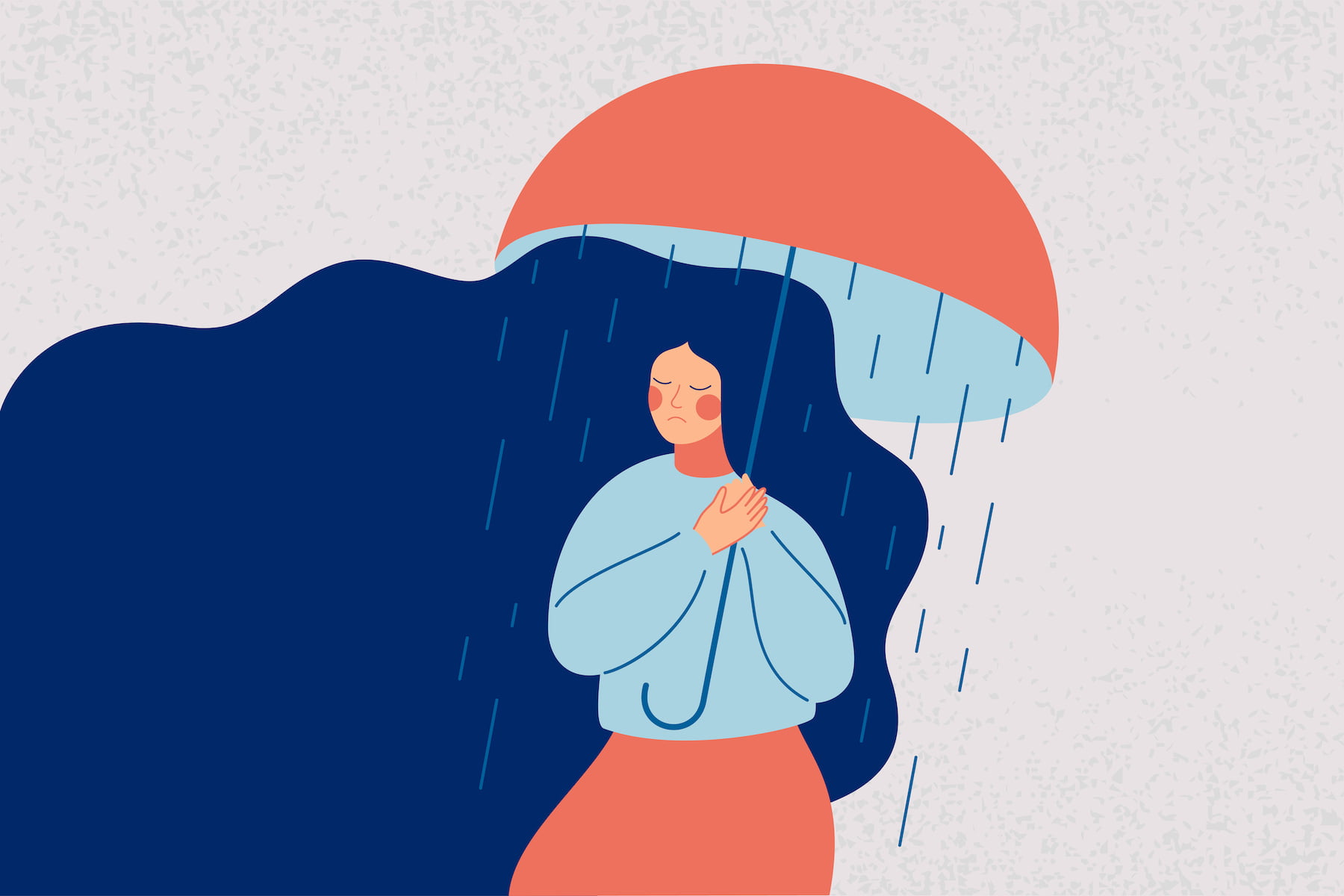While some may experience these mental conditions at different levels, anxiety, depression, and stress are normal. Although they all fall into mental health, they are nothing to be confused about. You might experience several symptoms and it is important to understand what they mean and what they can be categorized into. You might even be dealing with more than one of these conditions at the same time. Whatever the case is, it’s best to learn as much as you can about any negative symptoms in order to know how to treat any anxiety, depression, or stress you may have. We discuss the differences.
Anxiety
If you’ve ever had a panic attack or felt your body go into fight or flight mode, it’s likely that you were experiencing anxiety. Anxiety disorders refer to extreme panic or worry. Oftentimes, if you’re struggling with anxiety, you might find that it interferes with your daily life and may get in the way of your hobbies, work, and relationships. Anxiety is one of the most common mental disorders and can have sensations that are similar to symptoms of a heart attack. Even worse, anxiety can be one of the hardest out of the three to treat because its symptoms may overlap with depression.
Anxiety can be diagnosed through different disorders. There is general anxiety disorder, separation anxiety, panic disorders, phobias, and many more. This all depends on what the person is feeling and what triggers their anxiety the most.
Common symptoms of anxiety typically include:
- Excessive worry
- Restlessness
- Inability to sleep
- Irritability
- Fatigue
- Inability to concentrate
- Tension in the muscles
Anxiety can also cause other physical symptoms such as chronic headaches. Anxiety proceeds to interrupt a person’s daily life the more they believe a certain event is bad or dangerous. At Latinx Talk Therapy, we specialize in treating clients with anxiety through our cognitive-behavioral therapy services. If you’d like to learn more about how we can aid you, then reach out to us. We’re here to help!
Depression
People who suffer from depression often feel dull, sad, and may feel unmotivated to do anything. Depression can even be seen through a person’s physical appearance. Depression can cause people to sleep more than usual, eat less, and can induce negative thoughts, feeling as if it won’t get better. Overall depression is defined by feelings of discouragement, sadness, hopelessness, and disinterest that goes on for weeks, sometimes even months. Similar to anxiety, it affects the way a person thinks, feels, acts, behaves, and functions. Thankfully, it is also treatable.
Depression can become an anxiety disorder. Some people with depression may develop what is called “anxiety distress”, where most of what they feel or think is based on the idea that things won’t improve and that they will always experience negative feelings. This is why anxiety and depression can overlap each other, but it is important to consult with a professional who way they can provide an accurate diagnosis. Learn more about our depression therapy services, today.
Symptoms of depression include:
- Lack of interest in activities
- Increase or decrease in appetite
- Insomnia or hypersomnia
- Slow movements or reactions
- Lack of energy
- Feelings of worthlessness
- Inability to concentrate
- Suicidal thoughts and/or behaviors.
Stress
Stress can induce anxiety, depression, and many other conditions such as heart attacks, strokes, gastrointestinal problems, obesity, high blood pressure. Stress is caused by overwhelming feels and can play out on the mind and body. Stress can be so detrimental that it can interfere with the body’s ability to fight disease and can even be the cause of them. Without identifying triggers of stress, it can be difficult to overcome and cope with it.
Stress includes several symptoms such as:
- Chronic headaches
- Inability to sleep
- Muscle pain
- Back and/or neck pain
- Feeling dizzy or lightheaded
- Frequent illness
- Excessive worry
- Fast heart rate
- Inability to quiet the mind
- Lack of concentration
- Forgetfulness
- Low energy
Overall, stress can be an umbrella to anxiety, depression, and other mental concerns. Tackling stress and preventing it from worsening can help with preventing other mental conditions to grow.
There are many ways that you can relieve yourself of stress and cope with it. Maintaining mindfulness is one of the best techniques. Mindfulness allows you to reconnect with yourself and to let negative or overwhelming thoughts flow out. Exercise is also helpful as it releases feel-good chemicals that tackle negative feelings and thoughts. Breathing techniques and journaling are also found to improve levels of stress and even rid of these negative feelings overall. At Latinx Talk Therapy, we provide specialized stress management therapy services to Chicago’s Latinx community. If you’re curious about what our stress management services entail, then give us a call.
We’re Here to Support You
The professionals at Latinx Talk Therapy understand the anxieties, stressors, and depression that come with the downfalls of life. With our help, we’ll walk you to complete success, allowing you to put your discomfort in the past. Contact us today to make an appointment or to learn more.






